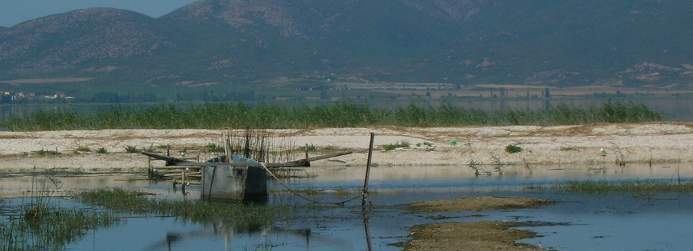If you are interested in accessing articles related to a specific GWP region, please select a region from the left hand side of the page.

Archive
This is the full archive of news articles and reports on GWP activities around the world.

This is the full archive of news articles and reports on GWP activities around the world.
If you are interested in accessing articles related to a specific GWP region, please select a region from the left hand side of the page.

Many climate change models predict that increasing temperatures, droughts, heavy precipitation and other extreme climatic events will have severe impacts on family farmers. Yields might be reduced by up to 50 percent in dry regions at the same time as family farming continues to be the basis unit of the agricultural economy in developing countries.

Building Linkages for Water Security and Climate Change Resilience in Zimbabwe
Key government institutions such as the Department of Water Affairs, including its parent Ministry, the Ministry of Water Resource Development and Management (MWRDM), played prominent roles at the launch of the Water and Climate Development Programme (WACDEP)in Harare, Zimbabwe, on the 10-11 April 2013, with over 70 stakeholders gathered.

The complex river basin system of the Nile basin is one of the most important ecosystems in Africa, hosting around 40% of the population. The nine countries of the Nile river basin share not only the world’s longest river, but also the challenges arising from climate change, such as land degradation, floods, reduced river flow, and droughts.
This year's World Water Week takes place in Stockholm 1-6 September 2013.

As a key step in the overall process of implementing the Water and Climate Development Programme (WACDEP), a rapid capacity needs assessment in Africa was launched on Tuesday, 23 April 2013. The assessment will initially target eight countries and five river basins/aquifer systems currently implementing WACDEP: Burundi, Rwanda, Burkina-Faso, Ghana, Cameroon, Tunisia, Zimbabwe and Mozambique; Limpompo Basin, Kegera Basin, Lake Chad Volta Basin and the North Western Sahara Aquifer System.

The nine countries sharing the Nile Basin may have specific variations in cultures, policies, and institutional frameworks, but climate change continues to be a cross-cutting factor impacting their socio-economic livelihoods – whether agriculture, energy production, mining safety, or water quantity and quality.

GWP Kyrgyzstan organized a workshop on 22-23 March 2013 in Bishkek for university lecturers to help them understand how to use the GWP IWRM ToolBox in education. Supported by the GWP global secretariat, the workshop was attended by 15 participants, mainly professors of the Kyrgyz-Russian Slavic University and the National Agrarian University in Bishkek, the leading universities in preparing Kyrgyzstan’s water resources graduates.

GWP Peru carried out the First Dialogue on National Development and Water Security in the context of Climate Change Adaptation on March 1, 2013, at the National Water Authority Auditorium in Lima. Its aim was to involve and sensitize actors across all sectors on the tight links among water management, adaptation to climate change, and sustainable economic growth.

GWP Caribbean (GWP-C) and GWP Mediterranean (GWP Med) are building awareness on the importance of water conservation by implementing rainwater harvesting techniques. With islands surrounded by salt water, the rainwater harvesting model is critical for access to fresh water in both regions.